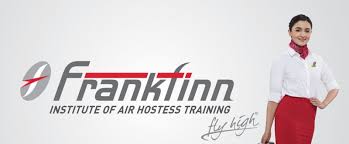


Learn essential skills and best practices with this Airport Ground Staff Training Guide for a successful aviation career.
In airports, there are a myriad of actions and services done by staff such as assisting passengers with boarding, managing baggage, providing needed services to the elderly or people with disabilities, and general customer service. Often, parts of flights such as boarding and check-in need coordination as a result of people needing to move steadily within an agreed timeframe. These operations are done by the ground crew. The crew members do more than greet guests while boarding; they are the very structure of modern aviation and enable amazing customer service relations within the terminal or plan. Gaining such mastery is not easy because of the myriad skills involved such as soft and hard skills. This blog will show how airport ground staff training help students to become the best in their job.
The skill set of such an employee is anything but simple. One must be able to perform a check-in to ensure passengers are assigned the right seats on the aircraft they are set to travel with. Gate management checks allow passengers in the waiting area to decide if they would like to board the plane with the scheduled seat to embark on travel, and boarding gives permission to the designated passenger who provides access to the aircraft.
Ground staff interact with travelers from different countries and backgrounds. Clear, respectful, and multilingual communication can prevent misunderstandings and tense situations, especially during delays or cancellations of flights.
When it comes to airport operations, customer service remains as one of the important limbs. For example, the ground personnel need to be accessible, empathetic, and level-headed so they may tend to problems, such as lost luggage or missed flights, efficiently. Demonstrating kindness and a willingness to aid passengers greatly enhances the service experience, and reflects positively on the airline and the airport.
All ground personnel need to be trained on how to operate the airline systems, scanners, boarding equipment, and all other relevant technical devices. Equally critical are global check-in systems and airport security protocols, as they guarantee operational efficiency.
There is a high degree of interdependence with regard to airport processes. Ground crew must work in conjunction with the security staff, cabin crew, maintenance personnel, and airline staff. The training by the ground staff training institute must foster collaboration with flexible communication methods that enable a ‘live’ dialogue to ensure planes depart and arrive on time.
Stressful circumstances may arise from delays, emergencies, and angry passengers. Employees who are part of ground operations need to be trained on how to manage these situations appropriately. Oftentimes, the situations require the use of crisis management which enables quick decision-making without endangering safety and quality of service provided.
Equip new hires with an orientation that provides them with in-depth knowledge of the relevant airport sections, airline regulations, equipment, and operating guides.
Staff confidence is built and preparedness is enhanced through the practice of check-in, boarding, and emergency evacuation simulations, as well as handling customer complaints.
Training on aviation industry boundaries, security screening procedures, and mechanisms for dealing with dangerous goods is mandatory. Safety drills also reinforce these measures.
Regular operations evaluations and procedure updates through retraining ensure that personnel are adequately informed of the changes in the industry, new technologies, and updated practices.
Classes on soft skills and basic foreign languages, alongside cultural customs, are aimed at helping ground staff more effectively deal with international travelers.
The efficacy, accuracy, and esteem that grounded staff hold for the aviation industry display their importance. A balance between technical instruction and interpersonal relations builds self-assured and skilled professionals stemming from integrated training disciplines. Practical activities alongside basic instruction and ongoing training equip staff to meet set standards and fulfil procedures, thus ensuring an effortless journey for travelers. Join Frankfinn Institute and learn the skills needed to become a successful airport ground staff member. Enroll now.
